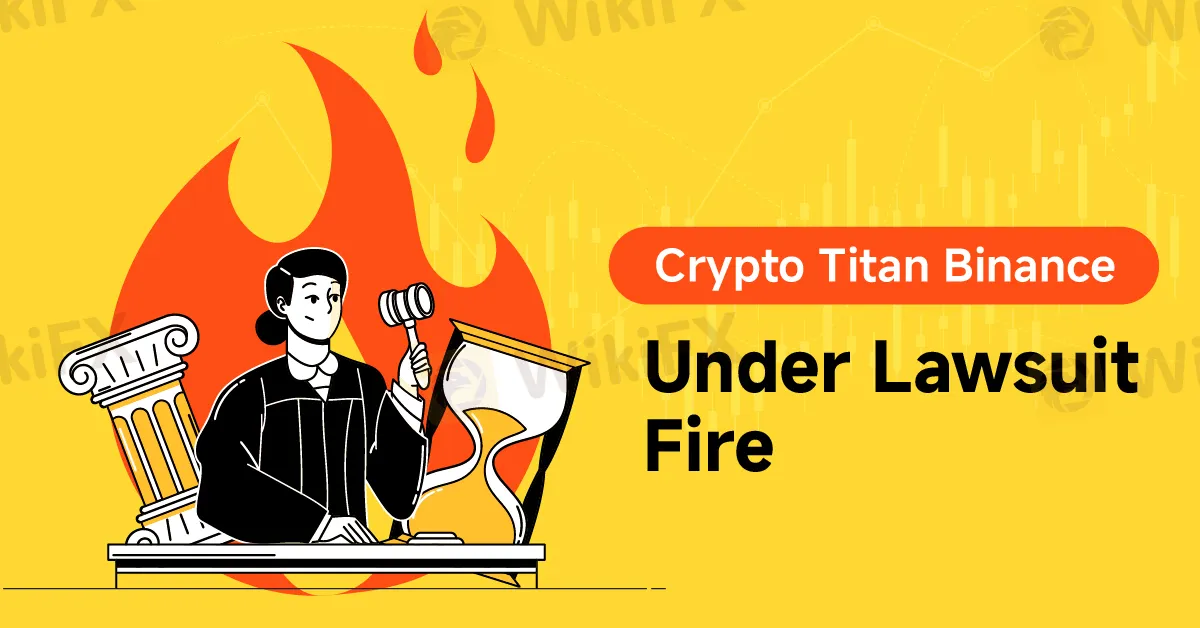简体中文
繁體中文
English
Pусский
日本語
ภาษาไทย
Tiếng Việt
Bahasa Indonesia
Español
हिन्दी
Filippiiniläinen
Français
Deutsch
Português
Türkçe
한국어
العربية
Crypto Titan Binance Under Lawsuit Fire
Abstract:A federal judge ruled that the majority of the U.S. Securities and Exchange Commission’s (SEC) lawsuit against Binance will continue to proceed.

A federal judge ruled that the majority of the U.S. Securities and Exchange Commission‘s (SEC) lawsuit against Binance, the world’s largest cryptocurrency exchange, will proceed. This decision, issued by Judge Amy Berman Jackson of the U.S. District Court for the District of Columbia, represents a significant setback for Binance, which had sought to have the SECs lawsuit dismissed.
The SEC's lawsuit, filed in June 2023, accuses Binance and its founder and former CEO, Changpeng Zhao, of several serious violations. These allegations include artificially inflating trading volumes, misappropriating customer funds, allowing U.S. customers to use its platform without proper restrictions, and misleading investors about its market surveillance practices. Furthermore, the SEC claims that Binance facilitated the trading of several cryptocurrency tokens that it considers to be unregistered securities, thereby violating U.S. securities laws.

Adding to these challenges, Binances legal troubles have been compounded by recent settlements. In November, Binance agreed to pay $4.3 billion to resolve charges brought by the Department of Justice and the Commodity Futures Trading Commission. These charges were related to breaches involving illicit financial activities. This substantial settlement underscores the increasing regulatory scrutiny Binance faces on multiple fronts.
Despite these obstacles, Friday's ruling offers a measure of optimism for the broader cryptocurrency sector. Judge Jackson concurred with a previous judge's determination that the SEC had not sufficiently demonstrated that secondary sales of Binances tokens—those sold by third parties on various exchanges—constituted securities. This aspect of the ruling could have significant implications for the regulation of cryptocurrency trading and the classification of digital assets.
The ongoing legal battle between the SEC and Binance underscores the tension between regulatory bodies and the rapidly evolving cryptocurrency industry. As the case progresses, it is likely to serve as a critical precedent for future regulatory actions and the development of clearer legal frameworks for digital assets.

Disclaimer:
The views in this article only represent the author's personal views, and do not constitute investment advice on this platform. This platform does not guarantee the accuracy, completeness and timeliness of the information in the article, and will not be liable for any loss caused by the use of or reliance on the information in the article.
Read more

Rising WhatsApp Scams Highlight Need for Stronger User Protections
UK consumers lose £2,437 on average to WhatsApp scams. Revolut demands stricter verification and AI monitoring to combat rising fraud on Meta platforms.

Georgia Man Charged in Danbury Kidnapping and Crypto Extortion Plot
Georgia man James Schwab charged in Danbury kidnapping tied to $230M crypto heist. Plot targeted couple for ransom after Miami altercation with son.

Bybit Shuts Down NFT Marketplace Amid Crypto Market Downturn
Bybit announces the closure of its NFT marketplace, citing efforts to streamline offerings. Discover the latest trends in the declining NFT market and its shift to utility-based growth.

Galaxy Digital Settles $200M in Luna Token Manipulation Case
Galaxy Digital pays $200M to settle Luna token manipulation probe by NY regulators, linked to TerraUSD’s 2022 crash, impacting crypto market stability.
WikiFX Broker
Latest News
Interactive Brokers Launches Forecast Contracts in Canada for Market Predictions
Authorities Alert: MAS Impersonation Scam Hits Singapore
INFINOX Partners with Acelerador Racing for Porsche Cup Brazil 2025
The Impact of Interest Rate Decisions on the Forex Market
Billboard Warns of Crypto Scams Using Its Name – Stay Alert!
STARTRADER Spreads Kindness Through Ramadan Campaign
Rising WhatsApp Scams Highlight Need for Stronger User Protections
A Trader’s Worst Mistake: Overlooking Broker Reviews Could Cost You Everything
How a Housewife Lost RM288,235 in a Facebook Investment Scam
The Daily Habits of a Profitable Trader
Currency Calculator







